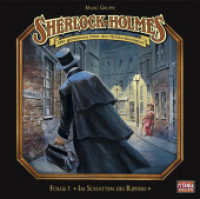Full Description
Western philosophy has often claimed for itself not just a distinct sphere of knowledge, but a distinct form of communication, set against ordinary speech. In Speaking Philosophically, Thomas Sutherland proposes that for some philosophers, authentic philosophizing demands a specific manner of speaking or writing, adoption of which enables one to gesture toward truths that propositional speech will never grasp. Drawing on a variety of thinkers - Heraclitus, Plato, Kant, Fichte, Nietzsche, Kierkegaard, Weil, Foucault, and Irigaray - Sutherland argues this emphasis on the form of philosophical communication can function as an exclusionary mechanism, determining who is deemed capable of speaking philosophically.
Contents
Introduction: A Philosophical Manner Of Speaking
1. Escaping The Noise Of The City: Heraclitus' Logos
2. Speaking In The Presence Of Truth: Plato And Dialectic
3. Speaking Appropriately: The Philosophical Work Ethic In Immanuel Kant
4. The Foundation Within Us: J.G. Fichte On The Role Of The Scholar
5. A New Breed Of Philosophers: Friedrich Nietzsche's Tyrannical Impulse
6. The Mark Of A True Christian: Søren Kierkegaard On Solitude
7. Aspiring To A Higher Good: Speaking Of Afbliction With Simone Weil
8. Writing At The Limits Of History: Michel Foucault And Unreason
9. Speaking With Borrowed Words: Strategic Mimesis In Luce Irigaray
BIbliography
Index








